Sens. Lindsey Graham and John Cornyn sat on a Munich stage alongside Ukraine’s president last weekend and reiterated their long-standing support for the war his country has waged against invading Russian forces.
“I want to tell you and your people,” Graham said to Volodymyr Zelensky, “you’re the ally I’ve been hoping for all my life. Not one American has died defending Ukraine. You’ve taken our weapons, and you’ve kicked their ass. And I’m very proud to have you as our ally.” Later, Cornyn argued that America and Ukraine need to halt Vladimir Putin’s territorial ambitions before he progresses further into Europe. “We need to recognize that Putin is driven by a vision of restoring the Russian Empire, and that’s why I believe that he won’t stop at Ukraine,” he said. “And that’s why it’s so important that we must stop him together in Ukraine.”
But just days after the Munich Security Conference, Graham, Cornyn, and other Republican senators who have long backed Ukraine in its nearly three-year war, are finding themselves in a bind—on the opposite side of President Donald Trump’s increasingly harsh rhetoric against Ukraine and its president. On Tuesday, he said Ukraine “never should have started” the war, and, on Wednesday, he called Zelensky a dictator.
Although Republican senators who have a record of supporting aid to Ukraine would not criticize Trump directly for his rhetoric, they found it easier to condemn Vladimir Putin.
“Vladimir Putin is a murderous dictator,” Sen. Thom Tillis of North Carolina told reporters. “He started this war, ordered the occupation, and now the souls of tens of thousands of Ukrainians are lost on his watch.”
But even as he noted there is “no moral equivalency between Vladimir Putin and President Zelensky,” Tillis attempted to explain away Trump’s comments, putting them in the context of previous Ukraine leaders who did not take measures to liberalize their government after the Cold War, which would have facilitated a potential admission to NATO.
“President Trump, to his credit, does not like seeing our military men and women going into harm’s way. I think he is trying to avoid conflicts that put American lives at risk,” said Tillis, who on Monday visited Kyiv with two Democratic senators. “He may be voicing some frustrations over some of these democratic norms, independent judiciary—all those things could be conflated into frustration with Zelensky.”
Whatever the source of his frustration, Trump aired it by using harsher language toward Ukraine than Russia. After his administration began meetings with Russian officials without Ukraine Tuesday in Saudi Arabia, Trump made comments at a press conference that falsely asserted the Ukrainians had initiated the war with Russia. “Today I heard, ‘Oh well we weren’t invited.’ Well, you’ve been there for three years. You should have ended it three years—you should have never started it. You could have made a deal,” Trump said. The next day, he doubled down, hitting Zelensky for not holding elections that were scheduled for last year, something that’s both legally and logistically difficult while the country is at war. “He refuses to have Elections, is very low in Ukrainian Polls, and the only thing he was good at was playing Biden ‘like a fiddle.’ A Dictator without Elections, Zelenskyy better move fast or he is not going to have a Country left,” Trump posted on social media.
That’s a very different tone from a Republican Senate caucus that has long been supportive of Ukraine. For nearly three years, Senate Republicans have castigated Putin for the invasion, and 31 Senate Republicans voted for America’s latest aid package for Ukraine last year. At the same time, they have an incentive not to criticize Trump too much, lest they draw his ire and that of his base.
After Sen. Roger Wicker, who chairs the Senate Armed Services Committee, told Politico in Munich that there are “good guys and bad guys in this war, and the Russians are the bad guys,” his reaction to Trump’s claim that Ukraine started the war was muted.
“I think the president probably misspoke,” Wicker said, adding that he was “hopeful that a solution can be achieved.”
Cornyn likewise endeavored to sound optimistic about Trump’s early efforts to bring about a ceasefire in the war.
“I was a little surprised at one of the president’s comments, but I think what’s more important is what the actions are,” he told The Dispatch of the “should have never started it” comment. “And I don't think there’s anything inherently bad about talking to Russia, but ultimately, I think this is going to be something that Ukraine is going to have to participate in.” Asked about the “dictator” comment, he told reporters, “I wouldn’t use the same word.”
Sen. John Kennedy of Louisiana said he had not heard about Trump’s “dictator” comment but gave a severe condemnation of Putin.
“I heard [Trump’s] comments about Ukraine starting the war, which I disagree with, and I’ve made my feelings known about Mr. Putin, I think, pretty clearly,” he told reporters. “I think he’s a gangster. I mentioned he’s got a black heart. I think he’s got Stalin’s taste for blood. I hate to have to even breathe the same air that he does. I think he’s an evil person. And I think he makes Jeffrey Dahmer look like Mother Teresa.”
Kennedy declined to answer a question about why he believed Trump didn’t seem to share his opinion.
“You’ll have to ask him,” he said.
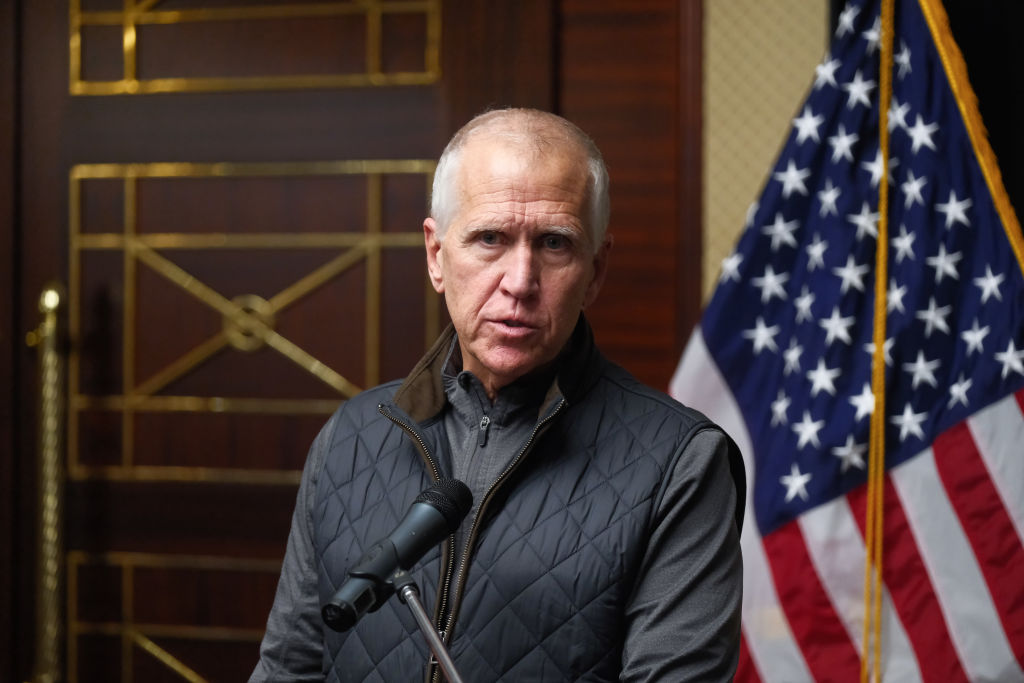

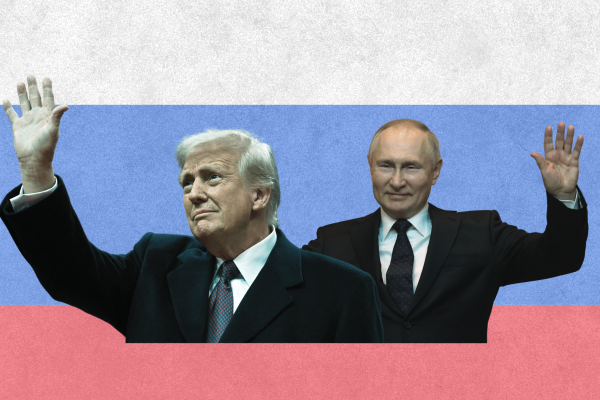
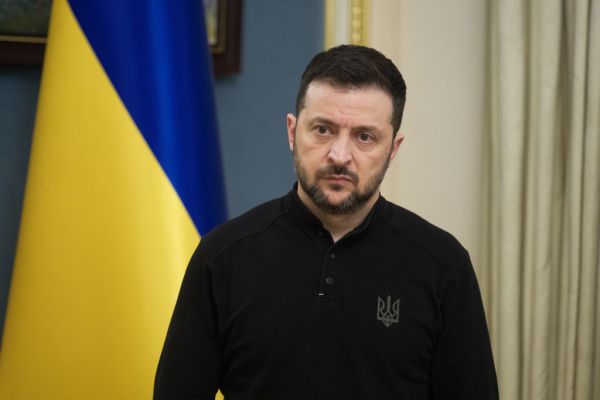
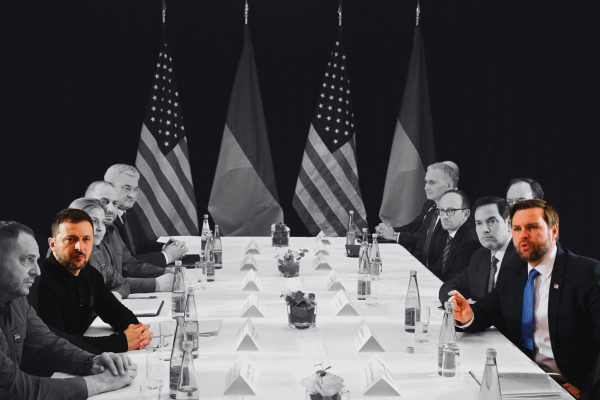

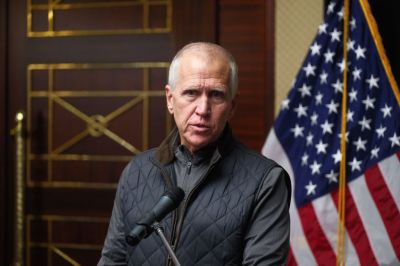
Please note that we at The Dispatch hold ourselves, our work, and our commenters to a higher standard than other places on the internet. We welcome comments that foster genuine debate or discussion—including comments critical of us or our work—but responses that include ad hominem attacks on fellow Dispatch members or are intended to stoke fear and anger may be moderated.
With your membership, you only have the ability to comment on The Morning Dispatch articles. Consider upgrading to join the conversation everywhere.